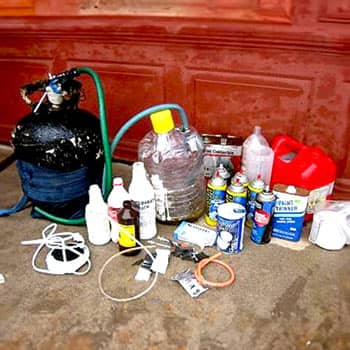Crystal Meth Addiction a Growing Concern
Crystal methamphetamine—commonly known as crystal meth or simply meth—has become one of the fastest-growing substance abuse issues in the country.
While Canada has long struggled with opioids, there is a growing concern about the use, production and trafficking of meth.
Cheap to purchase, powerful in effect, and extremely addictive, meth is leaving behind a trail of health, social, and economic problems.
What is Crystal Meth?
Crystal meth is a synthetic stimulant drug that impacts the central nervous system. Unlike substances such as cannabis or cocaine, meth is not derived from plants—it is produced in illegal labs with toxic chemicals.
In its crystalline form, meth is typically smoked, injected, or snorted. The drug produces an immediate and intense euphoria or “rush” that can last for hours, followed by increased alertness and energy. Meth addiction can occur rapidly.
Severe side effects, including agitation, paranoia, and aggression, often accompany this temporary high.
Because of how quickly it rewires the brain’s reward system, crystal meth is considered one of the most addictive drugs in Canada.

The Growing Use of Crystal Meth in Canada
Reports from law enforcement, healthcare providers, and addiction specialists reveal a troubling trend:
Police Seizures of Meth Increasing
The provinces of Alberta, Quebec, and British Columbia had the highest consumption rates and meth addiction.
Hospital Admissions Linked to Meth Use
Hospitalization due to this drug is climbing. Meth is a powerful drug and will often create drug-induced psychosis, cardiovascular problems, or violent behaviour.
Community Concerns
Community safety concerns in certain areas are on the rise as meth use is frequently linked to unpredictable behaviour, property crime, and homelessness.
One of the reasons the drug has spread so quickly is its low street price compared to opioids. For vulnerable populations—those experiencing poverty, trauma, or untreated mental illness—meth becomes a cheap, long-lasting escape, making it particularly dangerous.
1 888-488-8434
Get immediate
help for addiction.
Health Risks of Crystal Meth Use
Crystal meth use causes severe damage to both the body and mind. Some of the most common health risks include:
Physical Harm
With this drug, extreme weight loss, severe dental decay (“meth mouth”), skin sores, and increased risk of stroke or heart attack can occur.
Meth Addiction and Psychological Harm
Meth can produce paranoia, hallucinations, memory loss, violent outbursts, and long-term cognitive decline. See more about meth here.
Addictive Cycle of Crystal Meth
The addictive nature of the drug creates intense cravings and painful withdrawal symptoms (depression, fatigue, anxiety) make quitting without help extremely difficult.
Left untreated, crystal meth addiction can destroy relationships, careers, and quality of life, often leading to homelessness or criminal involvement.
Canada’s Response to Meth’s Growing Concern
The meth crisis in Canada is being met with a variety of strategies:
- Harm reduction initiatives, such as outreach teams, aim to reduce overdose and infection risks.
- Meth addiction treatment programs that include medical detox, cognitive-behavioural therapy, and long-term recovery planning.
- Law enforcement efforts to target meth trafficking networks and disrupt the supply.
- Public education campaigns to raise awareness about the dangers of meth use, particularly among youth.
Despite these efforts, the demand for crystal meth treatment continues to grow.

Finding Treatment for Meth Addiction in Canada
If you or someone you love is struggling with an addiction, it’s important to know that recovery is possible. Effective addiction treatment in Canada often includes:
- Medical detox to manage withdrawal safely.
- Inpatient or outpatient rehab programs that address the underlying causes of addiction.
- Therapies such as CBT are used to change destructive thought patterns and behaviours.
- Aftercare support, including relapse prevention and peer support groups.
Seeking professional help is the first step toward breaking free from crystal meth use and rebuilding a healthier, drug-free life. If you need help, call our professional referral counsellor for immediate assistance.
Ref: www.justice.gc.ca/

Marc Bernard
Author,
Addiction Field Specialist,
Referral & Consultation Counsellor, Ethics in Practice – NAADAC
Reviewed by Susan Chubbs Drug and Alcohol Treatment Specialist

